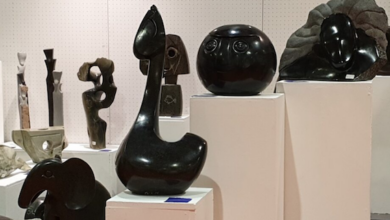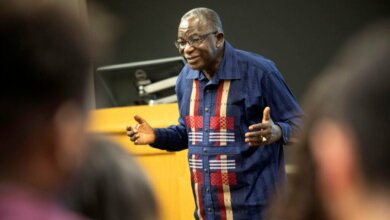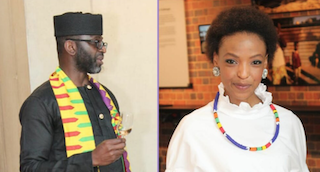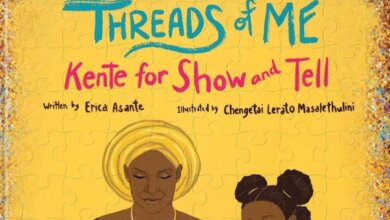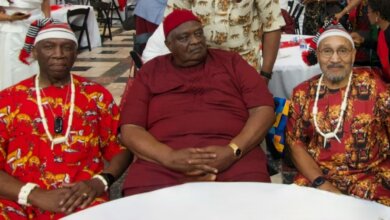Ghanaian chief, Nana Impream VIII shares Fante tribe history
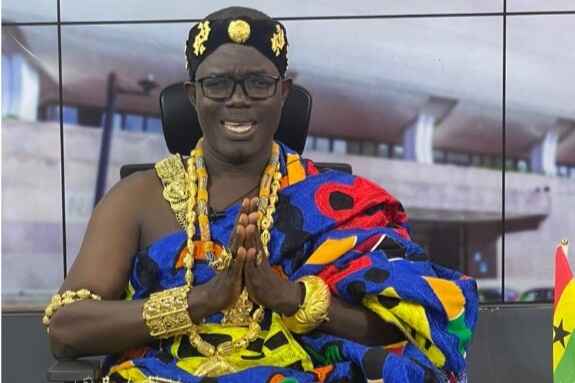
As part of the 2024 edition of the Ghana Month celebration, The Ghana Report engaged Nana Impream VIII, the Chief of Ekumfi Eyisam and Twafohen of Ekumfi Traditional Area on some untold stories about the Ghanaian Fante tribe.
According to Nana Impream VIII, the Central Region consists of tribes like Abora, Denkyira, Assin, Breman, Ajumako, Eyan, Abedze, Gomoa, Ekumfi, Agona, Awutu, and Afutu.
“The people of Ekumfi cerebrate Akwanbo Festival spirited by masqueraders of various Asafo groupings, amidst drumming and singing of war songs which is accompanied by a display of firing musketry. Ekumfi is endowed with vast deposits of minerals like Granite, Clay, Salt, Kaolin, Gold, and oil. We also have Ekumfi fruit Factory producing Ekumfi Juice”.
“Ekumfi shares boundaries with Gomoa on the East, Ajumako on the North Nkusukum on the West. Eyan on the North West and Mankessim on the West-East and with the south coast of the sea of the Gulf,” he noted.
The chief emphasized that the Central Region is known as as Fante region because the core majority are Fantes.
“The Central Region stretches from Gomoa Yayeano to Komenda on the coast. We move from the coastal to semi-coastal and then to the forest or the interior”.
He added that there are staple foods that are very common among all the groups in the Central Region.
“Major occupations are fishing and farming. Our staple foods are fufu, kenkey, ‘Ampese’, and ‘Etew’. We prefer eating fufu with all types of soup and fresh fish. Again our delicacy is ‘fantsefantse’ stew enjoyed with ‘Etew’ or Kenkey.”
“The chieftaincy system in Ekumfi is purely matrilineal same as the system of inheritance. The family groupings are known as clans with their specific emblems and totems. The mode of installation of a chief in Ekumfi is by the use of Palanquin(Apakanhen)” he added.
Nana Impream VIII revealed that there were some cultural practices among the Fantes that brought unity among people.
“I now see that the external family system has been taken over by a self-contained type of apartment. The family house system was the pivotal joint holding the entire household together. The system bled love, unity, a sense of belongingness, and care for one another was the utmost concern for all family members.“
“House members do everything in common, unlike the self-contained nuclear system where the preaching sermon is, each for himself or herself and God for us all. The family house system integrated family and family values and resulted in healthy community living” he noted.
According to him, “another important cultural practice is puberty Rite(Braka, or Bragoro). The essence of this rite is to instill the discipline of abstinence in teens and adolescent girls. The overall objective is to prevent teenage pregnancy. It was a big taboo in those days for a teen girl to get pregnant before the period of puberty rite. This practice curbed and controlled unwanted pregnancies in the Fante communities. Though some communities are still practicing the rite, its effectiveness has been eroded mainly due to the removal of the punitive measures associated with it”.
Subsequently, the chief shed light on some new practices among the Fantes that have brought emancipation and development currently.
“One of the spectacular events bearing tangible fruit is the blend of cultural tradition with religious activities which has greatly influenced community development. In recent times, most cultural and traditional events have been infused with religious activities which create cultural and religious diversity.
“The dynamism is sort to create all-inclusive society or community which is needed to foster homogeneity. By this, all hand of the community is drawn to the deck for development. Sometimes traditional activities are driven by religious force being the well-accepted norm today. For example, most of the traditional festivals climax with community-based interdenominational Sunday church service and Fund Raising Activities”.
Speaking on the mythologies of the Fantes, Nana Impream VIII narrated; “The Fantes were led by three great warriors known as ‘Obrumankoma(whale)’, ‘Odapagyan(eagle)’ and ‘Oson(elephant)’. According to tradition, Obrumankoma(whale) and Odapagyan(eagle) died while they were moving from Krako, present-day Techiman to the South and were embalmed and carried along to the group’s destination.
“Another historic event is the Fante Confederation. The kings of the Fante kingdoms and other southern states met at Mankessim early in 1868 to establish a self-governing state free of European domination, Known as the Fante Confederation”.
Moreover, Nana Impream VIII noted that the celebration of ‘Ahobaa festival’ has a great history which makes the festival very memorable as well.
“During the festival, the people come together in remembrance of Egya Ahor who gave up himself to be sacrificed to stop an epidemic[name of pandemic not known]. Ahor laid down his life so that his people could be saved from a plague which attacked and killed many of them after they migrated from Techiman to their present settlements”.
The Fantes also pride themselves on significant appointments that occurred under previous governments.
“The first-ever chairman of the Presidential Commission for the Republic of Ghana under President Osagyefo Dr. Kwame Nkrumah was the paramount Chief of Ekumfi Traditional Area, Nana Akyin VI”.
Written by Grace Tsotsoo Quaye

Disclaimer: The views and opinions expressed in articles and content by our contributors are those of their’s and do not necessarily reflect the official policy or position of our publication. We make every effort to ensure that the information provided is accurate and up-to-date, while holding contributing authors solely responsible for their contributions.

